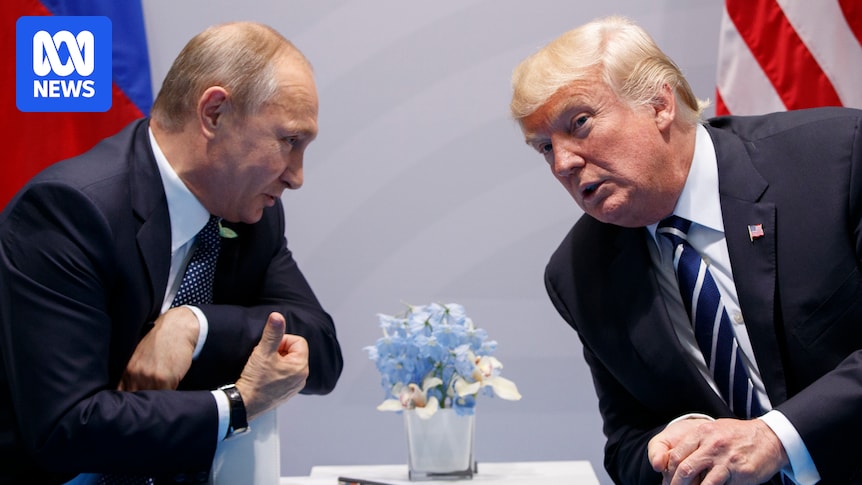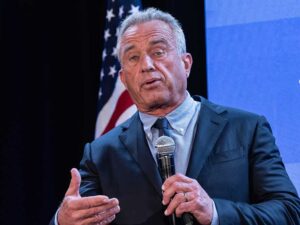
The White House has tempered expectations for significant progress towards a ceasefire in Ukraine, describing U.S. President Donald Trump’s upcoming meeting with Russian President Vladimir Putin in Alaska as a “listening exercise.” This summit, scheduled for Friday, comes amid escalating tensions in eastern Ukraine, where small bands of Russian soldiers have advanced deeper into the region.
On Tuesday, Russian troops made significant inroads near the coal-mining town of Dobropillia, a move that European leaders fear could result in peace terms being imposed on a diminished Ukraine. The incursion is part of President Putin’s wider campaign to assert control over Ukraine’s Donetsk region. In response, Ukraine’s military has dispatched reserve troops, acknowledging the challenging combat conditions they face against Russian forces.
President Trump has suggested that any peace agreement might involve “some swapping of territories to the betterment of both” Russia and Ukraine. However, this proposition has raised concerns among Ukrainian officials and their European allies, who worry that Ukraine might be pressured into making disproportionate concessions.
Ukraine’s Stance and European Concerns
Ukrainian President Volodymyr Zelenskyy has insisted that Russia must agree to a ceasefire before any territorial discussions can take place. He has firmly stated that Ukraine will not entertain any proposals that require it to withdraw troops from the eastern Donbas region or cede its defensive lines.
Zelenskyy and his European counterparts have emphasized that any lasting peace must involve Ukraine at the negotiating table and adhere to international law, respecting Ukraine’s sovereignty and territorial integrity. They plan to hold a virtual meeting with President Trump on Wednesday to reiterate these points ahead of his meeting with Putin, marking the first U.S.-Russia summit since 2021.
“An imitated rather than genuine peace will not hold for long and will only encourage Russia to seize even more territory,” President Zelenskyy stated on Tuesday.
When questioned about Zelenskyy’s absence from the Alaska summit, a White House spokeswoman explained that the bilateral meeting was proposed by Putin, and Trump accepted to gain a “better understanding” of how to end the conflict. “You need both countries to agree to a deal,” press secretary Karoline Leavitt told reporters, adding that Trump is open to a future trilateral meeting with Putin and Zelenskyy.
Military Developments in Eastern Ukraine
Ukraine is currently facing a shortage of soldiers, a situation exacerbated by the ongoing conflict that began more than three years ago. This shortage has facilitated recent Russian advances, with some analysts suggesting that these developments could increase pressure on Ukraine to yield territory in any potential peace agreement.
In a small but significant reversal, Ukraine’s military reported retaking two villages in the eastern region of Sumy on Monday, countering more than a year of slow Russian gains in the southeast. Meanwhile, the relentless drone and missile attacks from Russia underscore the urgent need for the U.S.-made Patriot air defense systems, which are eagerly awaited in Kyiv.
Sergei Markov, a former Kremlin adviser, remarked, “This breakthrough is like a gift to Putin and Trump during the negotiations,” indicating the potential leverage it provides Russia.
European Security and Diplomatic Implications
European leaders have consistently linked Ukraine’s ability to defend itself with the broader security of the continent. They have expressed readiness to further support Ukraine militarily and diplomatically. Polish Prime Minister Donald Tusk emphasized that Ukraine must not be pressured into making concessions that could be perceived as capitulation.
“Ukraine cannot lose this war and nobody has the right to pressure Ukraine into making territorial or other concessions,” Tusk stated, adding that he hopes to convince President Trump of the European position.
While most European leaders support Trump’s determination to find a resolution, Hungarian Prime Minister Viktor Orban, a key ally of Putin in Europe, has diverged from this consensus. Orban has controversially claimed that Russia has already won the war, dismissing the efforts of his European counterparts.
In recent weeks, President Trump has shown a tougher stance towards Russia, agreeing to send more U.S. weapons to Ukraine and threatening trade tariffs on buyers of Russian oil, although this ultimatum has since lapsed. As the world watches the upcoming summit, the stakes remain high for Ukraine, Europe, and international diplomacy.







